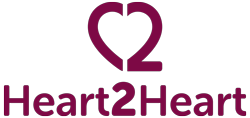Bromsgrove Standard - Rednal mum's campaign for heart test that saved her son's life
![]()
 A REDNAL mum whose son’s life was saved by a simple post-birth test is urging residents to join the campaign to roll out the process to delivery suites nationwide.
A REDNAL mum whose son’s life was saved by a simple post-birth test is urging residents to join the campaign to roll out the process to delivery suites nationwide.
Michelle Eastwood was due to have her son Sam at home in August 2008, but was taken into the Birmingham Women’s Hospital when his heart rate dropped during the labour.
After his birth, he was given a Pulse Oximetry test, which involved a clip being put on his finger for around 30 seconds to measure the oxygen levels in his blood.
They indicated he had a coarctation of the aorta – a heart defect which affects one in 125 babies – and he underwent a three-hour operation at Birmingham Children’s Hospital when he was just three days old.
The condition prevents the blood from travelling around the body and the surgery dilates the narrowed artery, enabling the blood to flow more freely.
When Michelle had Sam in 2008, the Birmingham Women’s Hospital was undergoing a 12-month trial of the Pulse Oximetry screening equipment.
She said: “If it hadn’t have happened when the machine was being trialled, Sam would not be here today.”
Sam, who is now four-and-a-half, is doing well and, although he may need surgery in the future, he only has to undergo checks every so often to ensure everything is okay.
Michelle’s calls for residents to back the CHF campaign coincide with Congenital Heart Defect Awareness Week, which begins today (Thursday) and runs until Thursday (February 14).
A campaign has been launched by The Children’s Heart Federation (CHF) in a bid to get a national Pulse Oximetry screening programme so all newborns can have the simple test done when they are given their other routine examinations.
The argument against introducing the Pulse Oximetry screening nationwide is that newborns’ heart defects can be diagnosed during the pregnant mums-to-be’s 20-week scan.
But, the CHF states, evidence shows only one in three of the defects are picked up by the ultrasound, whereas the Pulse Oximetry test is shown to detect three quarters of them.
The machines cost between £500 and £1,000 depending on the model and number needed.
![]() Anne Keatley-Clarke, the chief executive of the Children’s Heart Federation, said: “This test is really a no-brainer.
Anne Keatley-Clarke, the chief executive of the Children’s Heart Federation, said: “This test is really a no-brainer.
“It’s a quick, painless, simple procedure at low cost which has the potential, research shows, to detect many more babies with heart conditions”.
“The Children’s Heart Federation has been campaigning strongly for this change alongside parents and we really hope that the NHS National Screening Committee will listen to the voices of the thousands of parents who are calling for this test and decide to introduced it for all babies nationally.”
As part of the CHF campaign, residents are being urged to sign a petition. The charity hopes to get 10,000 signatures before its deadline at the end of August as that means the Government will have to respond to it. The CHF also wants people to write to their local MP.
Michelle wrote to her MP Richard Burden who, in turn, wrote to the Health Secretary to lobby him on the issue.
Mr Burden said he was happy to back such an important campaign.
“The test, already used in a number of hospitals, is non-invasive, takes just a few minutes and can be done alongside existing newborn checks.
“Including it in these tests for newborn babies as part of their screening after birth would help detect undiagnosed heart conditions and give all parents greater peace of mind.
“Every newborn baby deserves the same chance as Sam to receive the treatment they need as quickly as possible.”
Michelle, who is preparing for the Birmingham Half Marathon in October to raise funds for the CHF, said: “It’s such a simple test
and the equipment is not that expensive – having the screening in all hospitals nationwide will save babies’ lives.”
For more on the campaign, to sign the petition or help with lobbying your MP, visit www.chfed.org.uk/pulseox
Source









